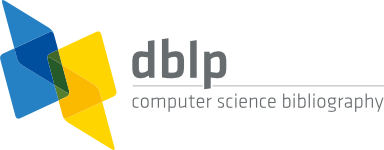SPECIAL ISSUES
Information Processing Systems for Sustainable Development for Smart Cities
2024.09.25
Efficient Resource Allocation and Management in Fog Computing for IoT
2023.10.18
Role of digital technologies in maintaining sustainable healthcare services
2023.10.18
Intelligent Information Systems for Data Management, Processes, Applications in E-commerce Environments
2023.10.18
Enabling intelligence beyond cloud with Biomedical signal processing and Health informatics
2023.04.19
The Progress of Hybrid Neural Networks for Image Processing Applications
2023.04.19
AI based Intelligent decision making for Industrial IoT using Fuzzy based systems
2020.12.15
Human Beings, Respect for Life, and Humanity (HRH)
2020.03.13
Deep & Advanced Machine Learning Approaches for Human Behavior Analysis
2020.02.27
AI-Enabled and Human-Centric Computing for Online Social Networks Security, Privacy and Trust
2020.02.24
Integration of AI in 5G Network Cybersecurity : Privacy and Security Concerns
2019.12.31
Category Search
JIPS Awards 2023
Most-cited Paper
RAVIP: Real-Time AI Vision Platform for Heterogeneous Multi-Channel Video Stream
Jeonghun Lee and Kwang-il Hwang* (INCHEON NATIONAL UNIVERSITY)
* 2021.1.1~2023.10.31
Most-published Paper (Corresponding Author)
Ruirui Zhang (Sichuan Agricultural University, China)
* 2021.1.1~2023.10.31
Excellent Service Award (Associate Editor Activity)
Yan Li (Inha University, Korea)
JIPS Awards 2022
Most-cited Paper
SkelGAN: A Font Image Skeletonization Method
Debbie Honghee Ko, Ammar Ul Hassan, Saima Majeed, Jaeyoung Choi*(Soongsil University)
* 2021.1.1~2022.10.31
Most-published Paper (Corresponding Author)
Jin Gon Shon (Korea National Open University, Korea)
* 2021.1.1~2022.10.31
Excellent Service Award (Associate Editor Activity)
Yeongwook Yang (Hanshin University, Korea)
JIPS Awards 2021
Most-cited Paper
"Big IoT Healthcare Data Analytics Framework Based on Fog and Cloud Computing"
Hamoud Alshammari, Sameh Abd El-Ghany, and Abdulaziz Shehab* (Jouf University, Saudi Arabia)
* 2020. 10.1 ~ 2021. 12. 31
Publication (Corresponding Author)
Yoojae Won (Chungnam National University, Korea)
* 2020. 12.1 ~ 2021. 12. 31
AE Activity
Jungho Kang (Baewha Women's University, Korea)
JIPS Awards 2020
Most-cited Paper
"Cyber Kill Chain-Based Taxonomy of Advanced Persistent Threat Actors: Analogy of Tactics, Techniques, and Procedures"
Pooneh Nikkhah Bahrami, Ali Dehghantanha, Tooska Dargahi, Reza M. Parizi, Kim-Kwang Raymond Choo*, Hamid H. S. Javadi (University of Texas at San Antonio)
* 2019. 1.1 ~ 2020. 8. 31
Publication (Corresponding Author)
Guoqing Xu (Nanyang Institute of Technology, China)
Liquan zhao (Northeast Electric Power University, China)
* 2019. 1.1 ~ 2020. 10. 31
AE Activity
Ji Su Park (Jeonju University, Korea)
The 2nd Journal of Information Processing Systems Awards (2018)
Most-cited Paper
"Block-VN: A Distributed Blockchain Based Vehicular Network Architecture in Smart City"
Pradip Kumar Sharma, Seo Yeon Moon and Jong Hyuk Park (Seoul National University of Science and Technology, Korea)
Publication (Corresponding Author)
Chengyou Wang (Shangdong University, China)
AE Activity
Yunsick Sung (Dongguk University, Korea)
JIPS Awards 2017
Most-cited Paper
"Mitigating Threats and Security Metrics in Cloud Computing" Jayaprakash Kar and Manoj Ranjan Mishra (King Abdulaziz University, Saudi Arabia)
Publication (Corresponding Author)
Jeong-Joon Kim (Korea Polytechnic University, Korea)
AE Activity
Byoung Wook Kim (Korea University, Korea)
Publications
-
Vol. 21, 2025
-
Vol. 20, 2024
-
Vol. 19, 2023
-
Vol. 18, 2022
-
Vol. 17, 2021
-
Vol. 16, 2020
-
Vol. 15, 2019
-
Vol. 14, 2018
-
Vol. 13, 2017
-
Vol. 12, 2016
-
Vol. 11, 2015
-
Vol. 10, 2014
-
Vol. 9, 2013
-
Vol. 8, 2012
-
Vol. 7, 2011
-
Vol. 6, 2010
-
Vol. 5, 2009
-
Vol. 4, 2008
-
Vol. 3, 2007
-
Vol. 2, 2006
-
Vol. 1, 2005
Indexing
All publications of JIPS are indexed in ESCI (a new Web of Science index of Thomson Reuters), SCOPUS, DOI, DBLP, EI COMPENDEX, EBSCO, Google Scholar, and Crossref.
JIPS is also selected as the Journal for Accreditation by NRF (National Research Foundation of Korea).









